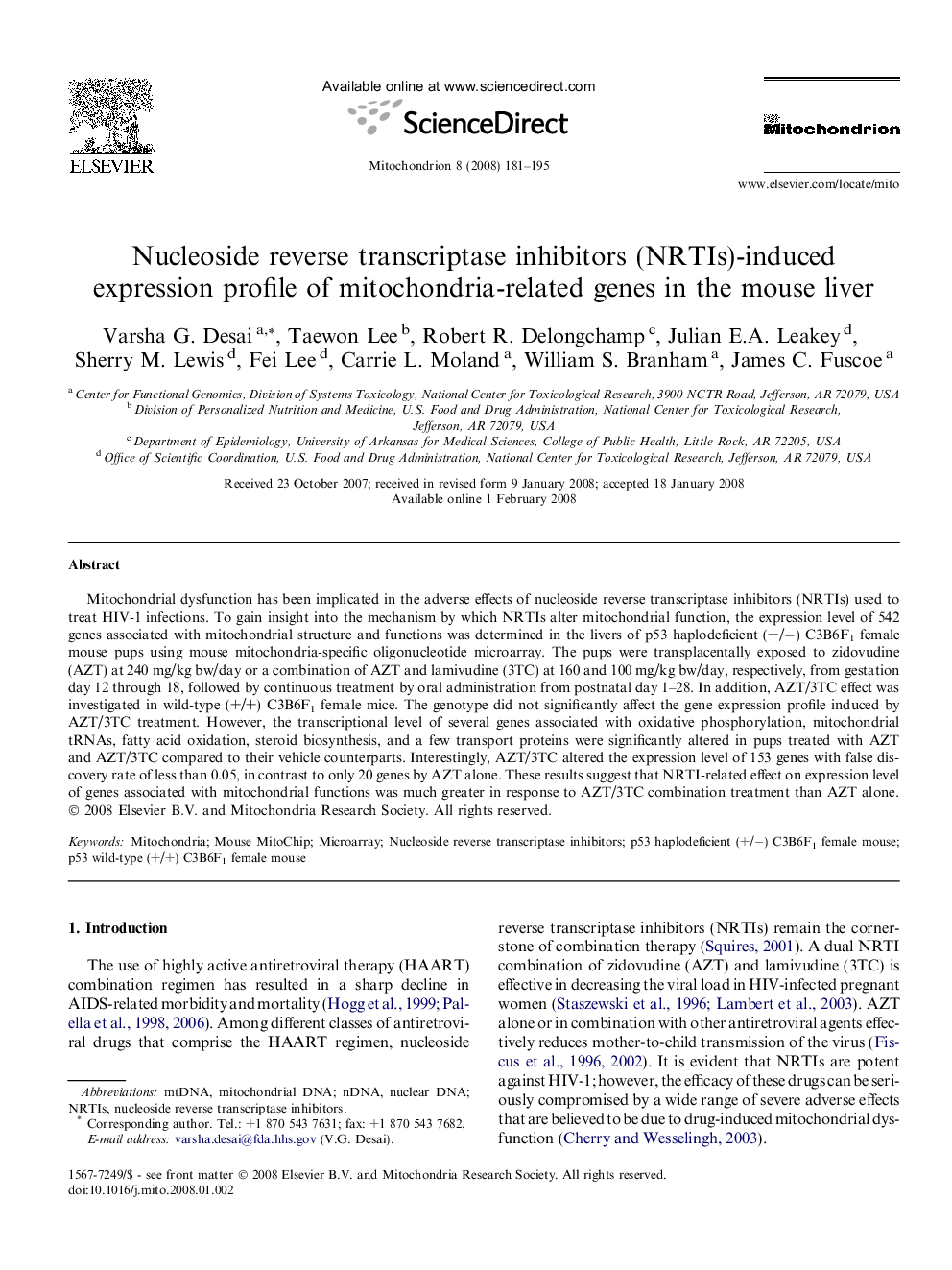| Article ID | Journal | Published Year | Pages | File Type |
|---|---|---|---|---|
| 2069362 | Mitochondrion | 2008 | 15 Pages |
Mitochondrial dysfunction has been implicated in the adverse effects of nucleoside reverse transcriptase inhibitors (NRTIs) used to treat HIV-1 infections. To gain insight into the mechanism by which NRTIs alter mitochondrial function, the expression level of 542 genes associated with mitochondrial structure and functions was determined in the livers of p53 haplodeficient (+/−) C3B6F1 female mouse pups using mouse mitochondria-specific oligonucleotide microarray. The pups were transplacentally exposed to zidovudine (AZT) at 240 mg/kg bw/day or a combination of AZT and lamivudine (3TC) at 160 and 100 mg/kg bw/day, respectively, from gestation day 12 through 18, followed by continuous treatment by oral administration from postnatal day 1–28. In addition, AZT/3TC effect was investigated in wild-type (+/+) C3B6F1 female mice. The genotype did not significantly affect the gene expression profile induced by AZT/3TC treatment. However, the transcriptional level of several genes associated with oxidative phosphorylation, mitochondrial tRNAs, fatty acid oxidation, steroid biosynthesis, and a few transport proteins were significantly altered in pups treated with AZT and AZT/3TC compared to their vehicle counterparts. Interestingly, AZT/3TC altered the expression level of 153 genes with false discovery rate of less than 0.05, in contrast to only 20 genes by AZT alone. These results suggest that NRTI-related effect on expression level of genes associated with mitochondrial functions was much greater in response to AZT/3TC combination treatment than AZT alone.
